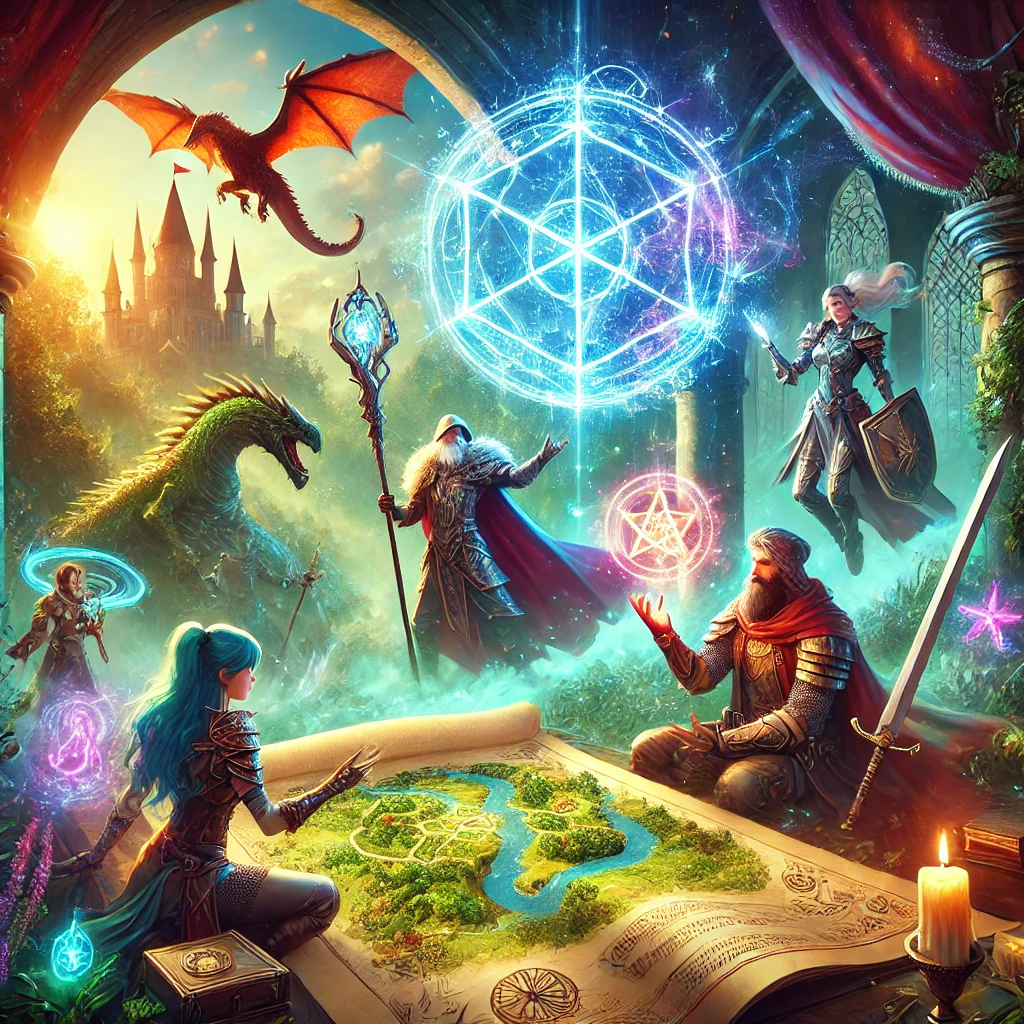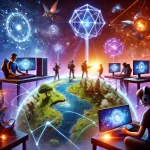Role-playing games (RPGs) have long been popular among those seeking adventure, creativity, and immersive storytelling. In today’s digital world, online RPGs have elevated this art, allowing players worldwide to connect and create complex stories together. Ranging from massive multiplayer online role-playing games (MMORPGs) to smaller, narrative-focused virtual environments, online RPGs offer a unique platform for creativity and collaborative storytelling.
Foundations of Role-Playing: Freedom and Imagination
Role-playing games are built on the idea that players take on the roles of characters in fictional worlds. These characters are molded by the player’s imagination, complete with backstories, unique traits, and personal goals. Unlike traditional video games with fixed narratives, RPGs let players make decisions that shape the story, giving them a sense of control over their journey.
Online RPGs enhance this by offering dynamic worlds that change based on player actions. Whether negotiating peace between factions, uncovering mysteries, or building trade hubs, players play an active role in shaping the narrative.
Storytelling in Online RPGs: A Team Effort
A key feature of online RPGs is their collaborative nature. Players from various backgrounds come together, each adding their views and ideas to the story. Guilds, parties, and alliances serve as storytelling centers where players work together towards common goals or face challenges.
Some examples include:
- In “World of Warcraft” (WoW), players form guilds with themes like pirate crews or knightly orders, creating their own stories within the game.
- “The Elder Scrolls Online” (ESO) invites players to explore Tamriel’s history, but the best stories often come from player-driven events like festivals or markets.
- “Final Fantasy XIV” (FFXIV) hosts player-run performances, weddings, and scripted adventures, showcasing shared creativity.
Encouraging Creativity Through Character Development
Creating a character in an online RPG is similar to developing a novel’s protagonist. Players design every detail, from looks and skills to backstories and personality traits. This process allows for creative expression, enabling players to explore aspects of themselves that they might not in real life.
- Deep Backstories: Players spend hours crafting detailed histories for their characters, often linking them to the game’s lore, adding depth and continuity.
- Role-Playing Events: Many online RPGs host events where players act as their characters, engaging in improvisational storytelling and enhancing immersion.
- Customizable Avatars: Advanced customization tools let players bring unique visions to life, adding another layer of creative expression.
The Role of Game Masters and Dynamic Worlds
While players drive the storytelling, game developers and game masters (GMs) set the stage. Dynamic worlds that respond to player actions create the illusion of a living environment.
- Adaptive Narratives: Games like “Guild Wars 2” use adaptive storytelling, where quests and world events change based on player actions, enriching the narrative experience.
Online RPGs continue to push the boundaries of creativity and storytelling, offering players a platform to explore, innovate, and collaborate in ways that traditional games cannot.
User-Generated Content
Games like “Neverwinter Nights” and “Roblox” let players make their own quests, dungeons, and storylines. This leads to unique stories created by the community.
Guided Role-Playing
Servers in games such as “Garry’s Mod” or “Minecraft” sometimes feature Game Masters (GMs) who guide role-playing scenes. They ensure the experience is engaging and consistent.
Breaking Creative Boundaries
Online RPGs have changed how stories are told by using new technologies and player creativity. These games now include voice acting, mods, and virtual reality to make the experience more immersive.
Voice Role-Playing: In games like “GTA Online” (GTA RP), players use voice chat to create detailed and cinematic experiences. They often share these adventures on platforms like Twitch.
Mods and Expansions: Players often add mods to games, bringing new stories, characters, and mechanics. This is common in games like “Skyrim” and “Arma 3”.
Virtual Reality RPGs: Games such as “VRChat” and “OrbusVR” allow players to interact physically with their environment and with other players in a virtual space.
The Psychological Benefits of Role-Playing
Online RPGs offer more than just fun storytelling; they also provide several psychological benefits:
- Improved Communication Skills: Role-playing often involves negotiation, persuasion, and teamwork, which can enhance social skills.
- Stress Relief: Escaping into a fictional world can help relieve real-world stress.
- Enhanced Problem-Solving: Many RPGs require players to think critically and adapt to new situations.
Challenges in Online RPG Storytelling
Despite the creative opportunities, online RPGs face several challenges:
- Trolling and Disruptions: Some players do not respect the storytelling environment, disrupting immersion for others.
- Time Investment: Creating and participating in rich stories often requires a significant amount of time and dedication.
- Balancing Freedom and Structure: It can be difficult to align player-driven stories with the game’s overall narrative.
Conclusion: The Infinite Canvas of Online RPGs
The art of role-playing in online RPGs showcases the power of human creativity and teamwork. These games turn players into storytellers, weaving complex tales of adventure and emotion. As technology advances, online RPGs will continue to offer even more immersive and dynamic storytelling experiences.
For those who love creativity and narratives, online RPGs are among the most engaging and rewarding mediums. Whether crafting an epic saga or joining a role-playing event for fun, these games invite players to step into new roles, unleash their imaginations, and become part of a shared story. The possibilities are endless, and the next great tale is just waiting to be written.


